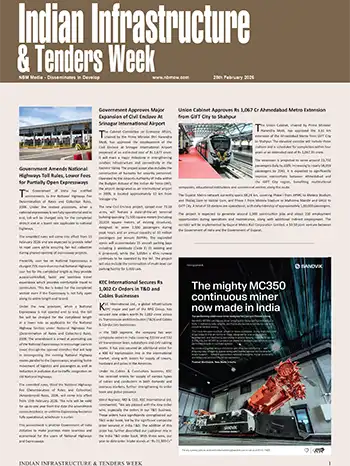The construction segment in India has reaped multiple benefits since the growth of AI. For instance, drones equipped with high-resolution thermal cameras can graphically depict energy inefficiencies and serve as an investigative tool for a host of building-specific applications. Further, they ensure timely completion of projects as they efficiently eradicate the need of shutting down active work sites for maintenance and inspection work like pipelines or flare stacks. There are multitudes of facets where AI has been integrated to enhance the credibility of the realty space:
Chatbots
These are one of the most marvellous ways through which artificial intelligence is revolutionising the real estate industry. Chatbots are digital wonders that assist companies to save on consumer service costs and facilitate in optimising time intervals spent on responding to questions by allowing a computer-generated assistant to reply to common queries that don’t modify from customer to customer.
Investor Analytics
The revenue and growth goals set by property investors can be checked with the help of a robot. The robot is intellectually equipped to evaluate risks based on pre-set parameters and makes all the required changes to competently meet the monetary goals. These assessments are accurate and save a lot of time and resources.
Artificial Intelligence and machine learning have radically changed the face of the real estate industry by delivering timely and quality projects through construction monitoring
Amit Jain, CMD, Arkade
Forecasting Loan Defaults
Real Estate crowdfunding uses artificial intelligence to envisage loan defaults and consequently upsurges investor profits. By forecasting defaults, the procedure of valuing risks gets thoroughly organised and in turn, encourages a focus on profitable investments while reducing non-profitable ones.
Deal Matching
Under this method, buyers state their expectations from an investment and when a property matches their criteria, they are notified about the same. Further, Data Matching technology is not just for home buyers, but can also be used by those consumers who wish to make purchases solely for investment purpose. Individuals need to mention standards on their dashboards and receive a list of properties befitting one’s preference.
Construction Automation
These tools increase cost efficiency by enabling builders to obtain quality materials at the best price from authentic suppliers present in the market. With the inclusion of robots to handle the acquisition of materials, organisations can cut down on expenditures and upturn profits by utilising artificial intelligence as the chief technological driver.
Property Management
Real estate industry involves several systems that require critical maintenance, and artificial intelligence makes the job easier by constant observation and providing notifications as and when replacements are needed. Additionally, it keeps a tab on rental trends in particular geographical zones and helps in defining the new rent once the lease agreement terminates. Other facets of property management such as building automation and growth analysis can be achieved by regulating probable returns basis critical inputs that influence rent, expenditures and proceeds in rental housing.
Intelligent Search Platforms
Most notably, search engines have incorporated artificial intelligence to enhance user experiences by providing improved results, even from a very basic property search. Before the advent of AI, investors, brokers, property buyers and sellers were left with limited options in terms of search criteria such as the value and property location. However, with the inclusion of artificial intelligence, searches have become more detailed and refined with multiple layers of information available to pique the interest of buyers. Further, the search results are compartmentalised in terms of ROI, good neighbourhoods, etc.
















